How to Stop Bad Breath While You TalkOct 24
Oct 24
Discover expert tips, daily habits, and smart effective brushing solutions like BrushO to help you combat bad breath while talking.

Why Does Bad Breath Happen When You Talk?
Many people feel that their breath becomes worse, especially while speaking, in close proximity. This isn’t just in your head—talking dries out your mouth, reducing saliva that naturally helps cleanse bacteria. Without enough saliva, odor-producing bacteria thrive.
Common causes of bad breath while talking include:
- Dry mouth (especially when nervous or speaking a lot)
- Skipping morning or evening brushing
- Poor tongue hygiene
- Dehydration
- Gum disease or untreated cavities
- Medical conditions (e.g., sinus issues, reflux)
Signs You’re Brushing Wrong (And It Affects Your Breath)
Skipping Areas Like the Tongue or Back Molars
If you don’t brush your tongue or ignore the back corners of your mouth, you’re leaving odor hotspots untouched.
Not Changing Toothbrush Heads Regularly
Worn-out bristles harbor bacteria and are less effective at removing plaque and odor-causing buildup.
Using Manual Brushes Without Feedback
Without any guidance, it’s easy to miss areas—especially the gumline or inner teeth surfaces.
How to Stop Bad Breath While Talking
1. Use a Smart Toothbrush That Tracks Every Spot
Traditional brushing relies on guesswork. A smart electric toothbrush like BrushO uses:
- 16-zone AI monitoring
- Smart pressure detection
- Tongue-cleaning reminders
- Weekly brushing reports
This ensures complete oral coverage and avoids overbrushing or under-cleaning.
✅ BrushO’s AI feedback loop helps detect missed zones and reminds you to clean odor-prone areas like the tongue, cheeks, and molars.
2. Don’t Skip the Tongue
Your tongue harbors millions of bacteria, which produce sulfur compounds (the main cause of bad breath). Always brush or scrape your tongue, especially before social events or speaking engagements.
3. Stay Hydrated (And Chew Sugar-Free Gum If Needed)
A dry mouth means bad breath. Keep a water bottle nearby and stay hydrated. If you’re in a meeting or can’t drink water, chew sugar-free gum to stimulate saliva flow.
4. Avoid Strong-Smelling Foods Before Conversations
Garlic, onions, and certain spices release compounds absorbed into your bloodstream—meaning they’ll resurface even after brushing. For important moments like interviews or dates, avoid these triggers beforehand.
5. Rinse Mid-Day (But Skip Alcohol-Based Mouthwashes)
Mouthwashes can help—but only if they’re gentle and alcohol-free. Alcohol dries your mouth, which worsens bad breath in the long run.
Look for a hydrating, antibacterial rinse you can use after lunch or coffee.
6. Visit a Dentist Regularly
If bad breath is persistent, it might be a sign of underlying gum disease, decay, or digestive issues. A dentist can help rule these out and recommend deeper cleanings if needed.
How BrushO Solves Bad Breath at the Source
BrushO’s smart brushing system goes beyond just cleaning:
✅ Zone-by-zone coaching helps ensure you brush your entire mouth
✅ Tongue-cleaning tracking reminds you to remove bacteria buildup
✅ Weekly brushing reports allow you to check consistency and progress
✅ Gentle yet effective sonic power removes plaque from deep pockets
With consistent use, users report fresher breath, cleaner teeth, and more confidence when speaking.
Final Thoughts: Confidence Starts With Fresh Breath
Bad breath during conversation can be uncomfortable, but it’s 100% preventable with the right habits and tools. From hydration to AI-powered brushing, small changes can make a huge difference.
If you’re tired of breath anxiety when speaking, maybe it’s time to let BrushO guide your brushing routine.
Recent Posts
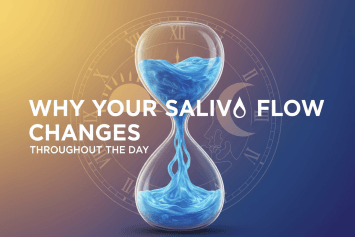
Why Your Saliva Flow Changes Throughout the Day
Saliva flow fluctuates throughout the day due to circadian rhythm, hydration, diet, and stress. Learn why it matters for oral health and how smart brushing protects teeth during low-saliva periods.
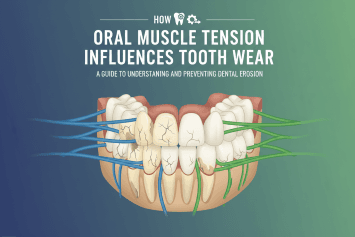
How Oral Muscle Tension Influences Tooth Wear
Oral muscle tension and jaw strain can accelerate tooth wear, enamel erosion, and gum stress. Learn how muscle habits influence dental health and how smart brushing supports long-term protection.
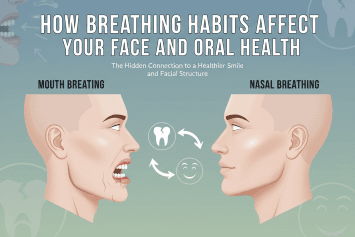
How Breathing Habits Affect Your Face And Oral Health
Discover how mouth vs nose breathing affects oral health, facial development, jaw alignment, and sleep quality — and how to protect your teeth and gums with proper habits.
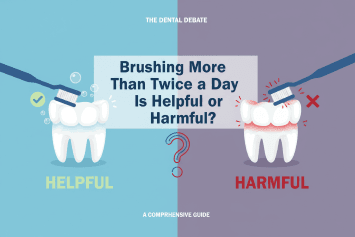
Brushing More Than Twice a Day Is Helpful or Harmful?
Is brushing more than twice daily good for your teeth? Learn how brushing frequency affects enamel, gums, and sensitivity, and discover dentist-backed guidance for safe oral care habits.
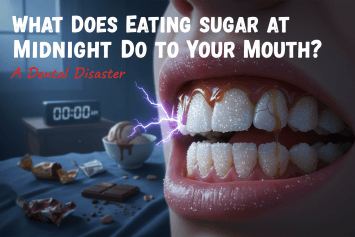
What Does Eating Sugar at Midnight Do to Your Mouth?
Discover how eating sugar at midnight affects oral bacteria, enamel health, and overall wellness. Learn why late-night snacking raises cavity risk and how proper brushing protects your teeth.

Does Early Morning Coffee Only Harm Your Teeth?
Morning coffee can stain teeth and affect enamel, saliva, and digestion. Learn how coffee impacts oral health and how to protect your smile with smart brushing habits.

How to Know Which Toothpaste Actually Suits You
Choosing the right toothpaste affects enamel strength, gum health, and sensitivity relief. Learn how to select the best toothpaste based on ingredients, needs, and brushing habits.

What Are the Bumps on the Back of Your Tongue?
Noticed bumps on the back of your tongue? Learn what they are, when they’re normal, warning signs to watch for, and how proper oral hygiene supports tongue health.

Why Most People Think They Brush Well, But They Don’t
Think you brush your teeth well? Discover why most people overestimate their brushing technique, the science behind plaque removal, and how smart tools improve oral hygiene effectiveness.

Top 5 Drinks That Quietly Damage Your Oral Health
Discover the top drinks that quietly damage oral health. Learn how sodas, juices, energy drinks, coffee, and alcohol erode enamel and increase cavity risk — plus science-backed tips to protect your smile.
